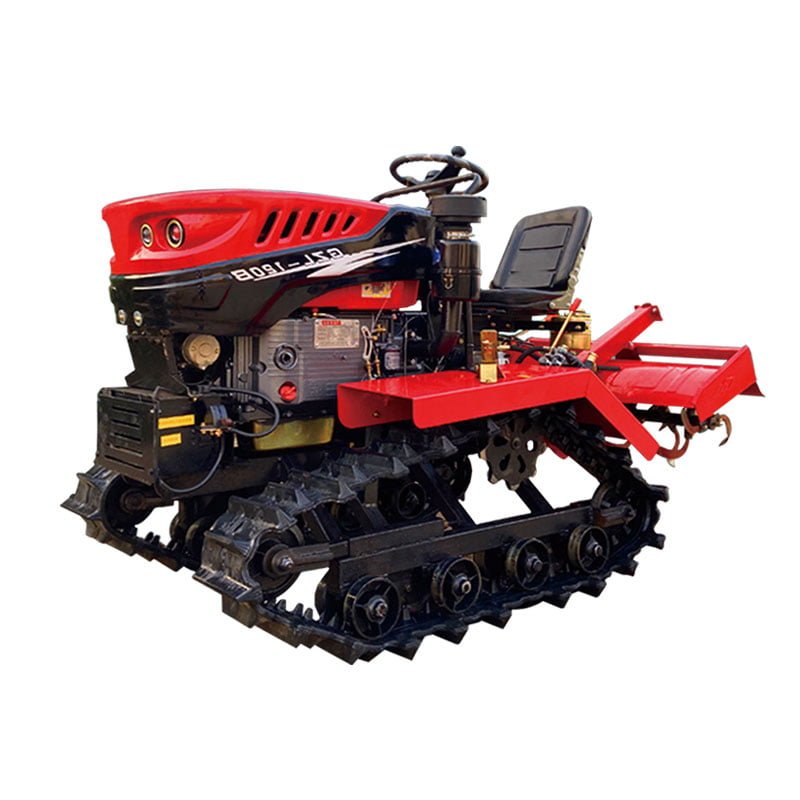The debate between small wheeled and small tracked tractors often arises choosing the right equipment for agricultural, landscaping, or construction tasks. Small tracked tractors, in particular, have gained popularity for their versatility, maneuverability, and performance in various conditions. But are they truly better than their wheeled counterparts? This article delves into the advantages and considerations of small tracked tractors to help you decide if they are the superior choice for your needs.
Advantages of Small Tracked Tractors
Superior Traction
One of the most significant advantages of small tracked tractors is their superior traction. The tracks distribute the weight of the tractor more evenly over a larger area, reducing ground pressure and allowing for better grip on soft or wet terrain. This makes them ideal for working in muddy fields, soft soil, or steep slopes without getting stuck or causing damage to the ground.
Enhanced Maneuverability
Despite their size, small tracked tractors offer impressive maneuverability. They can turn on a very tight radius, making them highly agile in confined spaces. This is particularly beneficial for landscaping tasks or working in orchards and vineyards, where navigating around obstacles is essential.

Reduced Ground Damage
The lower ground pressure of tracked tractors means they cause less damage to the soil and vegetation compared to wheeled tractors. This is crucial for maintaining the health of the land and is especially important in agricultural settings where soil compaction can lead to reduced crop yields.
Versatility
Small tracked tractors are incredibly versatile, capable of performing a wide range of tasks with the right attachments. From mowing and tilling to digging and grading, these tractors can adapt to various jobs, making them a valuable investment for property owners and professionals alike.
Considerations When Choosing a Small Tracked Tractor
While small tracked tractors offer numerous benefits, there are also factors to consider before making a decision:
Speed and Efficiency
Tracked tractors generally have lower speeds compared to wheeled tractors, which can affect efficiency, especially over long distances. However, the enhanced traction and maneuverability often outweigh this drawback in challenging terrain.
Maintenance and Cost
The tracks and undercarriage of a tracked tractor require regular maintenance to ensure optimal performance. This can lead to higher maintenance costs compared to wheeled tractors. Additionally, the initial purchase price of a tracked tractor may be higher, but the versatility and durability can justify the investment over time.
Terrain and Task Suitability
While small tracked tractors excel in soft, wet, or hilly terrain, they may not be the best choice for hard surfaces or tasks that require high speeds. It’s essential to assess the typical conditions and tasks you’ll be facing to determine if a tracked tractor is the right fit.
Conclusion
Small tracked tractors offer several advantages that make them a compelling choice for many applications. Their superior traction, enhanced maneuverability, reduced ground damage, and versatility make them particularly well-suited for challenging terrain and a variety of tasks. However, considerations such as speed, maintenance costs, and terrain/task suitability should be weighed to ensure they meet your specific needs. Ultimately, whether small tracked tractors are “better” depends on the context of their use. For those working in difficult conditions or requiring a high degree of maneuverability and versatility, tracked tractors can indeed be the superior option.
Please leave a message if there is anything confused or visit official website if you are interested in.